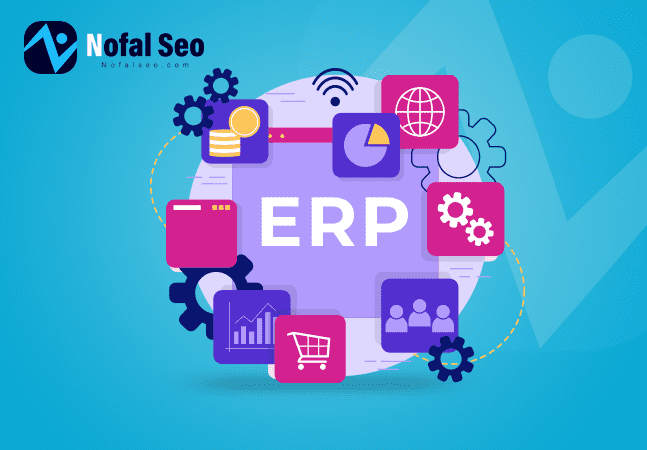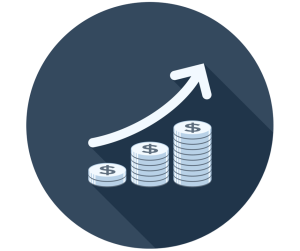
Book a Free Consultation Now
Would you like to know more about this topic?
Contact us on WhatsApp and get a free consultation from our experts
Contact on WhatsApp NowAn ERP system is a powerful solution that integrates and manages all core business operations in one centralized platform. NOFAL SEO stands out as the leading company in delivering advanced ERP system solutions, helping businesses streamline operations, improve efficiency, and achieve sustainable growth through customized, data-driven implementations.
What is the ERP system?
Definition of ERP System
An ERP system (Enterprise Resource Planning) is a software solution designed to integrate and manage core business processes, including finance, supply chain, manufacturing, human resources, and more. It provides a centralized platform that ensures seamless data flow across departments, enhancing collaboration and decision-making.
Core Functionalities of an ERP System
- Data Integration: Combines information from different departments into a single database.
- Automation: Reduces manual tasks and streamlines workflows.
- Reporting and Analytics: Provides real-time insights for informed decision-making.
What are some examples of ERP systems?
![]()
Benefits of ERP Systems
1. Improved Efficiency
ERP systems automate repetitive tasks, minimizing errors and freeing up time for employees to focus on strategic initiatives.
2. Centralized Data Management
By consolidating all business data into a single platform, ERP systems eliminate data silos, ensuring consistency and accuracy.
3. Enhanced Decision-Making
With real-time analytics and reporting, businesses can make data-driven decisions that align with their goals.
4. Cost-Effectiveness
While the initial investment may be significant, ERP systems reduce operational costs in the long run by improving productivity and minimizing inefficiencies.
5. Scalability
ERP systems grow with your business, offering flexibility to adapt to changing needs and expanding operations.
![]()
Key Features of an ERP System
1. Modular Design
ERP systems are typically modular, allowing businesses to choose the functionalities they need, such as accounting, CRM, or inventory management.
2. User-Friendly Interface
Modern ERP systems prioritize ease of use, ensuring employees can quickly adapt to the software.
3. Customization
Many ERP solutions can be tailored to meet the unique requirements of a business.
4. Integration Capabilities
ERP systems can integrate with third-party applications, enhancing functionality and streamlining operations.
Read more: E-marketing company
ERP System Examples
Several ERP systems dominate the market, each offering unique features tailored to various industries.
- SAP: Known for its robust functionalities and industry-specific solutions.
- Oracle ERP Cloud: Ideal for large enterprises seeking advanced analytics and scalability.
- Microsoft Dynamics 365: Combines ERP and CRM functionalities into a unified platform.
- NetSuite: A cloud-based ERP system suitable for growing businesses.
How ERP Systems Transform Businesses
1. Streamlined Operations
ERP systems eliminate redundancies and inefficiencies by automating workflows and centralizing data.
2. Better Resource Management
With real-time insights, businesses can optimize resource allocation, improving productivity and reducing waste.
3. Enhanced Collaboration
By providing a unified platform, ERP systems foster collaboration across departments, ensuring everyone works towards common goals.
4. Compliance and Risk Management
ERP systems help businesses adhere to regulatory requirements and reduce risks through improved data accuracy and security.

Read more: A complete e-marketing course
Types of ERP System
1. On-Premise ERP
Installed locally on a company’s servers, offering greater control but requiring significant upfront investment.
2. Cloud-Based ERP
Hosted on the cloud, providing flexibility, scalability, and lower initial costs.
3. Hybrid ERP
Combines on-premise and cloud solutions, offering a balance of control and accessibility.
Steps to Implementing an ERP System
1. Assess Business Needs
Identify the specific challenges your business faces and determine the functionalities required in an ERP system.
2. Select the Right Vendor
Choose a vendor like NoFalseo that understands your industry and offers tailored solutions.
3. Plan and Deploy
Develop a detailed implementation plan, including timelines, budgets, and training sessions.
4. Monitor and Optimize
Regularly assess the ERP system’s performance and make necessary adjustments to maximize efficiency.
Read more: The importance of e-marketing for companies
Challenges in ERP System Implementation
1. High Initial Costs
While ERP systems are cost-effective in the long run, the initial investment can be substantial.
2. Resistance to Change
Employees may be hesitant to adopt new systems, highlighting the need for proper training and communication.
3. Data Migration
Transferring existing data to a new ERP system requires careful planning to avoid errors and data loss.
Partnering with an experienced provider like NoFalseo can help businesses overcome these challenges seamlessly.
Read more: How do I start e-marketing?
FAQs About ERP Systems
What is an ERP system used for?
- An ERP system integrates and automates core business processes, enhancing efficiency and decision-making.
How much does an ERP system cost?
- Costs vary depending on the system’s features, deployment type, and the size of the business.
Can ERP systems be customized?
- Yes, most ERP systems, including those implemented by NoFalseo, can be tailored to meet specific business needs.
Which is the best ERP system?
- The best ERP system depends on your business requirements. Popular options include SAP, Oracle, and Microsoft Dynamics.
Why choose NoFalseo for ERP system implementation?
- NoFalseo offers personalized solutions, exceptional support, and a proven track record of successful ERP implementations.
Is ERP a SAP system?
No, ERP is not a SAP system. ERP (Enterprise Resource Planning) is a type of business software used to manage and integrate core business processes. SAP is one of the companies that develops ERP systems.
In other words, SAP is an ERP provider, while ERP is the system concept itself. SAP offers popular ERP solutions, but there are many other ERP systems such as Oracle, Microsoft Dynamics, and NetSuite.
What is ERP vs CRM?
| Aspect | ERP (Enterprise Resource Planning) | CRM (Customer Relationship Management) |
|---|---|---|
| Main Focus | Managing internal business processes | Managing customer relationships |
| Purpose | Improve operational efficiency and resource management | Increase sales and improve customer satisfaction |
| Key Users | Finance, HR, Operations, Supply Chain teams | Sales, Marketing, Customer Support teams |
| Core Functions | Accounting, inventory, HR, procurement, manufacturing | Lead management, sales tracking, customer support |
| Data Scope | Internal company data | Customer and prospect data |
| Goal | Streamline business operations | Build strong customer relationships |
| Example Systems | SAP, Oracle ERP, Microsoft Dynamics | Salesforce, HubSpot, Zoho CRM |
Why Choose NoFal seo for ERP System Solutions?
1. Expertise in ERP Systems
NoFalseo has years of experience in implementing ERP systems across various industries, ensuring that every solution is tailored to the client’s needs.
2. Customization at Its Best
With NoFalseo, businesses receive ERP solutions designed specifically to address their unique challenges and goals.
3. Comprehensive Support
From initial consultation to post-implementation support, NoFalseo provides exceptional customer service at every step of the process.
4. Proven Track Record
NoFalseo has helped numerous businesses achieve operational excellence through state-of-the-art ERP systems.
If you’re looking to streamline operations and achieve real business success, a powerful ERP system is the right solution. Contact NOFAL SEO today to get a customized ERP system tailored to your business needs and start driving efficiency, growth, and long-term success.
Do you need a consultation about this topic?
Contact on WhatsApp